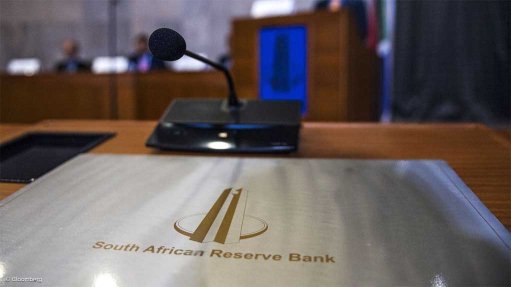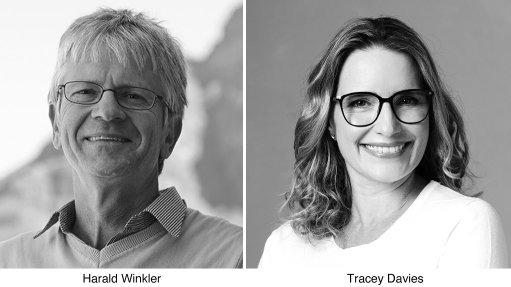Overarching threats and opportunities in 2023
As most of sub-Saharan African businesses race towards the end-of-year close and the prospect of a summer or festival break, it is time to reflect on yet another year hurtling by at breakneck speed. Why does it seem so? Across Africa, the greatest disruptor of all – climate change – seemed to step up havoc as the global response went into reverse gear.
Talks at the United Nations (UN) Climate Change Conference in November shifted from limiting climate change to accepting a need to adapt to missing the goal of limiting the 1.5 ºC increase in global warming. Drought – the worst in 30 years – intensified across North Africa’s agricultural heartlands, turning Algeria and Morocco into grain importers. Drought in the south has worsened dam levels feeding already poor hydropower plants, prompting power rationing in Zimbabwe and Tanzania. But with Egypt hosting COP27, Africa’s plight as the victim of the West’s historically profligate consumption of resources at least placed restitution on the COP agenda for the future and also highlighted the role of Africa’s rainforests as a solution to what is increasingly a climate emergency.
But as the continent faces up to nature, a more temporal influence marked disruption even before the world brought the Covid-19 pandemic to heal. Temporal in that it’s due to the pride, vanity and corruption of one man, a dictator of the old order, Russia’s Vladimir Putin, who sent the Russian army into Ukraine with orders to take control and subjugate Ukraine in three days. Western resistance to Putin’s imperial ambitions sent shockwaves through the global economy which ricocheted around Africa. The Ukraine-Russia denouement is likely to dominate at least the first half of 2023 and will leave some African countries more geopolitically battered than others.
With the continent barely recovering from Covid-19’s massive disruption to north-south trade, Russia’s invasion of Ukraine had a whiplash effect of immediate hikes in oil import costs and grain and food supply shortages, adding to import bills, all resulting in sharp hikes in inflation, which, in some countries, reached double digits for the first time in decades. The geopolitical uncertainty that the invasion sparked saw a capital flight from emerging markets: Egypt’s pound devalued by 14% after foreign investors pulled billions of dollars out of that country in response to Russia’s actions.
As ever in conflict, there are winners and losers. The European Union’s (EU’s) setting – and meeting – its target to slash its dependence on Russian oil and gas by 90% by the third quarter resulted in a host of deals that were highly favourable to several African oil and gas producers. Africa’s oil provinces suddenly became attractive all over again, with Western oil giants, several of which were forced to pull out of Russia in response to sanctions, looking to accelerate new projects in Angola, Algeria, Tanzania and Gabon.
Once again Africa has become the table on which the neo-Cold War geopolitical ping-pong is played as the EU and the US put pressure to mitigate the supply disruptions that Russia’s invasion has caused. Some countries have played the crisis to their great advantage – notably Tanzania and Gabon.
The war and demand for gas sparked a flurry of diplomacy, with EU and US officials seeking to shore up support and limit Russia’s influence. Germany’s Chancellor, Olaf Scholz, visited Senegal in pursuit of a gasfield, outgoing Italian Prime Minister Mario Draghi shuttled from Rome to Algiers to boost ENI’s gas production, Norway’s Equinor secured liquefied natural gas (LNG) projects in Tanzania, while the UK’s Perenco plans to invest $1- billion in a second LNG plant that would make Gabon a major LNG producer by 2026. Algeria and Angola, both long-standing allies of Russia and with valuable business links to Russia, have been less than receptive. Algerian President Abdelmadjid Tebboune rejected US calls to boost gas exports to Europe and Sonatrach CEO Tawfiq Hakkar said the company would not be an alternative for Russian gas in Europe.
Not to be outdone, Russian Foreign Minister Sergei Lavrov’s own diplomatic shuttle secured support from Ethiopia, taking advantage of souring relations with the West over the Tigray conflict. Russia supplied Sudan with grain and has looked to set up a new trade bank with Mozambique. But almost everywhere Lavrov went, he was followed by US or EU representatives. His visit to Uganda was followed within a week by US ambassador to the UN Linda Thomas-Greenfield, and US Secretary Anthony Blinken followed him to the Democratic Republic of Congo (DRC). While most countries have been able to work the geopolitical scene in their favour, a very negative impact of the conflict has been the influence carried by Kremlin-aligned mercenary group Wagner, which has provided support for military coup d’états in Mali, Burkina Faso, Guinea and in Sudan. But with Wagner being pulled back to Russia to join in the conflict, a security vacuum will be left that will continue the negative impact into 2023.
In a significant and marked change to regional relations, regional bodies are taking more of a prominent role in resolving regional military coups and crises. Thus, the Economic Community of West African States has taken the lead over the resolution of the military coups, with neighbours imposing sanctions on coup leaders in Burkina Faso and Mali. The year started with Côte d’Ivoire’s Prime Minister Patrick Achi launching a $55.1-million antiterrorism plan in the country’s north-eastern regions to prevent any overspill from Burkina Faso and Mali. This effort was replicated in Ghana.
In East Africa, new Kenyan President William Ruto is muscling in on Angola’s President João Lourenço’s reputedly effective diplomatic intervention in the Great Lakes conflict, raising concerns over Ruto’s motives and expansionist agenda.
Meanwhile, a bumper crop of elections in 2023 and 2024 will dominate the political arena. Arguably, the most important are those in Zimbabwe. The best outcome would be a Zambia-style landslide win for the opposition, but it is likely Zanu-PF will repeat its age-old tactics to retain power and continue to render Zimbabwe a State-sponsored criminal enterprise. The other major election is in Nigeria. Again, there is little prospect of change, with the two main candidates both wedded to continuing Nigeria’s legendary kleptocracy.
Article Enquiry
Email Article
Save Article
Feedback
To advertise email advertising@creamermedia.co.za or click here
Press Office
Announcements
What's On
Subscribe to improve your user experience...
Option 1 (equivalent of R125 a month):
Receive a weekly copy of Creamer Media's Engineering News & Mining Weekly magazine
(print copy for those in South Africa and e-magazine for those outside of South Africa)
Receive daily email newsletters
Access to full search results
Access archive of magazine back copies
Access to Projects in Progress
Access to ONE Research Report of your choice in PDF format
Option 2 (equivalent of R375 a month):
All benefits from Option 1
PLUS
Access to Creamer Media's Research Channel Africa for ALL Research Reports, in PDF format, on various industrial and mining sectors
including Electricity; Water; Energy Transition; Hydrogen; Roads, Rail and Ports; Coal; Gold; Platinum; Battery Metals; etc.
Already a subscriber?
Forgotten your password?
Receive weekly copy of Creamer Media's Engineering News & Mining Weekly magazine (print copy for those in South Africa and e-magazine for those outside of South Africa)
➕
Recieve daily email newsletters
➕
Access to full search results
➕
Access archive of magazine back copies
➕
Access to Projects in Progress
➕
Access to ONE Research Report of your choice in PDF format
RESEARCH CHANNEL AFRICA
R4500 (equivalent of R375 a month)
SUBSCRIBEAll benefits from Option 1
➕
Access to Creamer Media's Research Channel Africa for ALL Research Reports on various industrial and mining sectors, in PDF format, including on:
Electricity
➕
Water
➕
Energy Transition
➕
Hydrogen
➕
Roads, Rail and Ports
➕
Coal
➕
Gold
➕
Platinum
➕
Battery Metals
➕
etc.
Receive all benefits from Option 1 or Option 2 delivered to numerous people at your company
➕
Multiple User names and Passwords for simultaneous log-ins
➕
Intranet integration access to all in your organisation


















